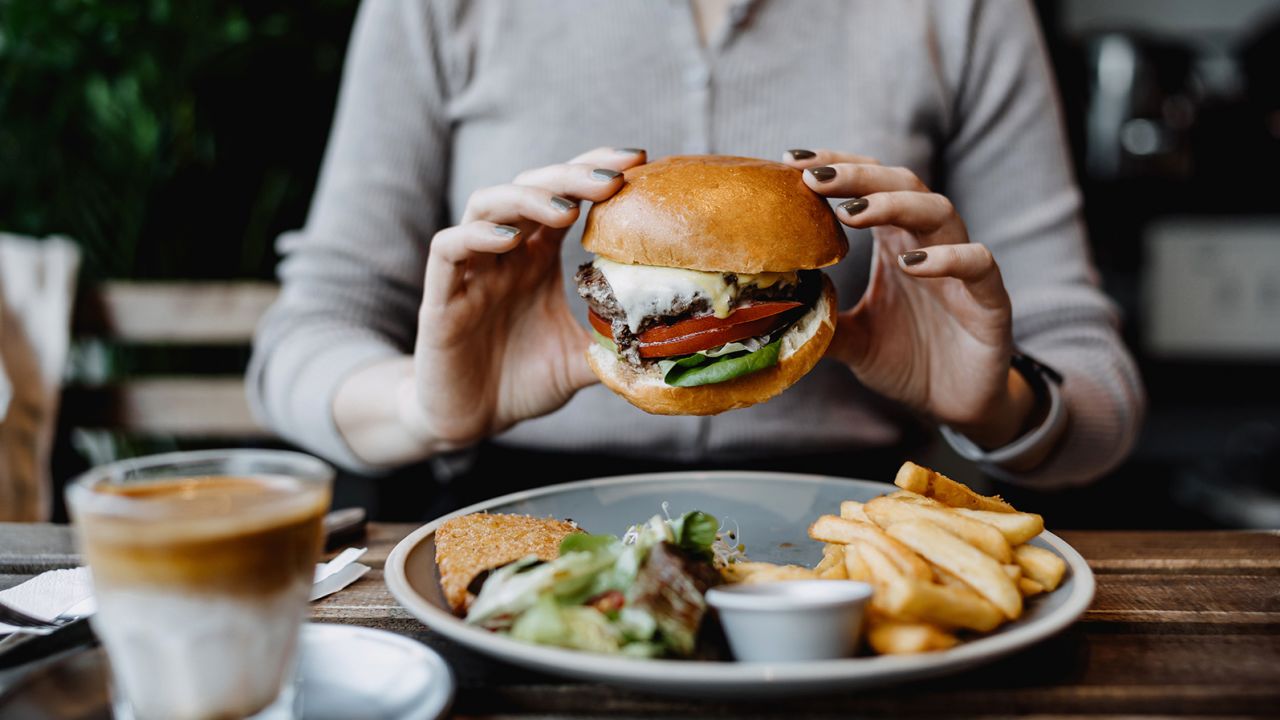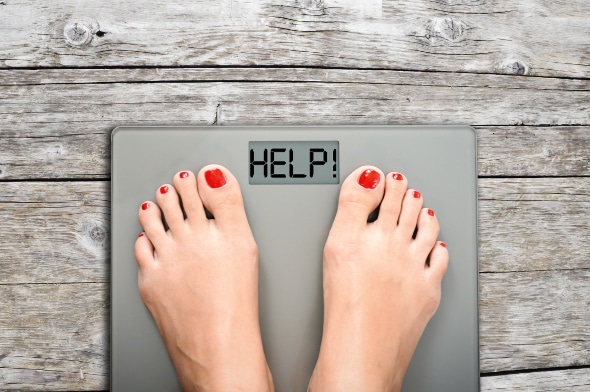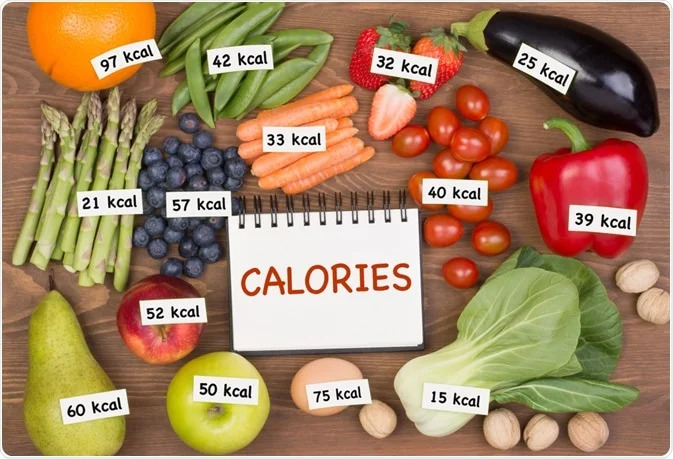How To Lose Weight Fast And Safely At Home
Safe, effective, and sustainable weight reduction is more about the process than it is about a finish line based on a scale with an impending deadline, much like so many other aspects of life. For tips from professionals on how to lose weight fast and keep it off, continue reading.
Author:Suleman ShahReviewer:Han JuOct 05, 202336.3K Shares596.1K Views

There are various reasons why people want to lose weight, and many of them fall victim to fad diets that promise quick and effective results. While it's possible to speed up your weight reduction efforts, it's crucial to realize that doing so too rapidly might really backfire.
Safe, effective, and sustainable weight reduction is more about the process than it is about a finish line based on a scale with an impending deadline, much like so many other aspects of life. For tips from professionals on how to lose weight fastand keep it off, continue reading.
12 Tips For Safe And Sustainable Weight Loss, According To Experts
Cutting down on carbohydrates, increasing protein intake, lifting weights, and getting more sleep are all strategies that may support long-term weight reduction. It will help you improve your healthand increase the likelihood that you will lose weight permanently if you concentrate on long-term health and behaviors you can maintain. Here are some weight loss suggestions supported by research.
Eat More Plants
According to research, a plant-based diet not only encourages weight reduction but also is simpler to follow than a low-calorie one. Additionally, it is nutrient-rich and offers a host of health advantages. Produce aids in weight reduction since it is high in fiber and water, both of which have no calories but fill up your stomach and make you feel full, according to the expert.
In actuality, a Brazilian research discovered a link between greater fruit and vegetable intake and improved weight reduction. The expert advises starting with five servings per day of vegetables and building up to seven to nine servings per day.
“„Start your day with a green smoothie, have a salad or cut up vegetables for lunch, and eat fruit for snacks and desserts, the expert advises. Have extra stir-fries for dinner, add vegetables to your pasta recipes, and mix them into soups.
Reduce Your Intake Of Ultra-Processed Carbs And Sweets
What you consume is crucial for weight reduction, according to a research published in the Journal of the American Medical Association. If you increase your food quality intake, the pounds will fall off more rapidly.
Getting less sugar and quickly digested carbs into your diet is one of the best methods to lose weight, according to the expert. You should avoid or significantly reduce your consumption of items with a high glycemic index, such as sugary snacks, processed carbohydrates, and soft drinks. You'll lose weight more quickly if you avoid or consume less of foods like French fries, chips, and crackers. Here are somegreat foodsto incorporate if you want to feel fuller longer:
- Non-starchy vegetables
- Fish
- Meat
- Nuts and seeds
- Beans and legumes
- Grapefruit
- Oatmeal
- Apples
- Eggs
- Ginger
- Leafy greens
Drink More Water
According to research, weight reduction is linked to increased water consumption regardless of diet or activity. Drinking enough of water will help reduce sugar cravings and boost satiety. Water is also required for the body's process of burning fat for energy, known as lipolysis. Jordan Morello, a Florida-based celebrity trainer who works for the fitness website Sweat Factor, recommends drinking 8 ounces of water eight times a day as a minimum water consumption.
Once they include this guideline into their daily routines, my clients are often amazed by how much it may reduce cravings and help you feel fuller for the rest of the day. Added water trick again? Consider consuming two glasses of water before to eve
Get More Sleep
One of the finest things you can do to keep your weight in check and your general health is to get a good night's sleep. According to studies, getting too little sleep may lead to weight growth and other health problems. Researchers discovered that individuals who slept little more than five hours per night had a 15% higher risk of obesity than those who slept seven hours per night after examining 16 years' worth of data on 68,183 middle-aged American women.
The hormones ghrelin and leptin, which control hunger, may be affected by insufficient sleep, making individuals feel more ravenous throughout the day. Additionally, lack of sleep makes cortisol rise, which makes it more difficult to eliminate body and belly fat. "Counting back seven to nine hours from the time you have to wake up is a great tip," says Darnbrough.
“„Most of us can't control what time we have to get up, but we can control when we go to bed. In order to optimize your deep sleep and REM, I also encourage the 3-2-1 rule, which means stop working three hours before bed, stop eating two hours before bed, and stop using digital stimuli one hour before bed.
Watch Less Television
The more television someone watches, the more weight they acquire, therefore couch surfers who want to reduce weight should turn it off. One research that gathered information from more than 50,000 middle-aged women over the course of six years discovered that the participants' risk of obesity and diabetesincreased by 23% and 14%, respectively, for every two hours they watched television each day.
The main reason why excessive television viewing is linked to additional weight is because it's a sedentary pastime that often also results in mindless eating. So, shut it off or maybe switch to an exercise program on the television.
Implement Long-Term Lifestyle And Behavior Changes
Albertson advises against using the term "diet" while attempting to reduce weight. When you're attempting to lose weight, you don't want to be continuously thinking about food since dieting may be unpleasant and make you hungry. Instead, she advises prioritizing taking care of your body and seeing weight reduction as a component of being healthy.
Although you don't have complete control over the number on the scale, you do have control over what you eat, how much you walk, and other aspects of your life that might affect your weight, including stress and sleep, according to Albertson. She advises creating SMART objectives for oneself, which are defined as being precise, measurable, attainable, relevant, and time-sensitive.
Focus On The First 5% To 10%
Consider the health advantages of even small weight reduction rather than telling yourself, "I need to lose 25 pounds," and overwhelming yourself with what seems like an unachievable goal. Set more manageable goals, Bennett advises. Only losing 5% to 10% of your body weight (TBW) may have a significant positive impact on your health and reduce your chance of developing conditions including type 2 diabetes, stroke, cardiovascular disease, and several forms of cancer.
Stand Up And Move More
Increasing your non-exercise activity thermogenesis (NEAT) the energy used for everything you do that is not eating, sleeping, or exercising is one of the simplest methods to lose weight. Small adjustments like pushing a cart instead of carrying your goods, parking farther from the mall entrance, using the stairs instead of the elevator, or simply tapping your toe may result in hundreds of more calories being burnt. Or try to stand more often than you sit.
According to studies, switching from sitting to standing alone increases daily energy expenditure, which in turn increases the number of calories and eventually pounds burnt. For instance, if you weigh 160 pounds and alternate between sitting and standing, you may burn an extra 35 calories every hour, or an additional 280 calories per day, 1,400 calories per week, and almost 70,000 calories annually.
"Set a timer on your phone, Fitbit, or computer to remind you to get up and move around every hour," advises Albertson. You'll burn more calories and maybe reduce your chances of heart disease and blood sugar problems.
Hit The Weights
Compared to fat, muscle burns more calories. So, how can you increase your muscular mass? exercising your muscles. In addition to the calories you'll burn while exercising, resistance training is a wise addition to any weight reduction program because of the "afterburn effect." Excess post-exercise oxygen consumption, or EPOC, is a measure of how long oxygen intake is raised after exercise to aid in muscle recovery.
The metabolism is boosted both during and after strength training sessions by this rise. Furthermore, your resting metabolic rate (RMR) increases when you add more muscle to your body. The number of calories your body requires to operate at rest is determined by your RMR.
The more you can consume without gaining weight, the higher your RMR must be. Although it's often stressed, strength training is essential for losing weight and keeping it off, particularly beyond age 50 when muscle mass, which burns calories, falls at a rate of 1% to 2% year. Strength training helps halt the loss of muscle mass.
The Daily Intake Consumed
To determine your daily calorie intake, you'll need to consider factors such as your age, gender, activity level, and weight loss goals. Here are some general guidelines:
Calculate Your Basal Metabolic Rate (BMR)
Your BMR represents the number of calories your body needs to maintain basic functions like breathing, circulation, and cell production. You can calculate your BMR using various formulas like the Harris-Benedict Equation.
Factor In Activity Level
After calculating your BMR, you'll need to factor in your physical activity level to determine your Total Daily Energy Expenditure (TDEE). This accounts for the calories you burn through activities such as work, exercise, and daily life.
- Sedentary (little or no exercise) -BMR x 1.2
- Lightly active (light exercise or sports 1-3 days a week) -BMR x 1.375
- Moderately active (moderate exercise or sports 3-5 days a week) - BMR x 1.55
- Very active (hard exercise or sports 6-7 days a week) -BMR x 1.725
- Super active (very hard exercise, physical job, or training twice a day) -BMR x 1.9
Set A Calorie Deficit
To lose weight, you need to consume fewer calories than your TDEE. A common approach is to create a calorie deficit of 500 to 1,000 calories per day, which can lead to a safe and sustainable weight loss of 1-2 pounds per week.
Monitor Your Intake
Track your daily calorie consumption using a food diary or a mobile app to ensure you stay within your calorie target.
Don’t Go Overboard
Working out nonstop or significantly reducing calories might actually have the opposite effect on weight reduction. The majority of individuals believe that drastic steps must be used to lose weight, but giving oneself enough time to recuperate is more beneficial. According to certified personal trainer Rob Darnbrough, CEO and co-founder of The Smart Fit Method in California, "Many people will double down on the stressor (i.e. catabolic phase) that they are doing when they get frustrated that they haven't lost weight."
For instance, they could increase the number of miles they run, the amount of time they spend working out, or the quantity of food they consume. However, the preceding actions only produce the desired outcomes while the anabolic recovery period is in full swing. According to Darnbrough, the body gains muscle growth and sheds fat mass during the anabolic phase as it recovers from the stressor.
0Put as much effort into relaxation and nutrition as you do into exercises to avoid overtraining and mediocre outcomes, which result from pushing yourself too far. Try to balance your stress to recuperation ratio in order to produce outcomes that are long-lasting, advises Darnbrough.
Check In With An Accountability Partner
Although losing weight might sometimes seem lonely, you don't have to do it alone. Accountability has been shown to be effective. According to a research, two-thirds of individuals who signed up for a weight-loss program with friends kept the weight off for six months after the sessions finished, compared to just a quarter of those who went alone.
Naturally, many organizations advise having a sponsor or champion during your weight-loss journey. Checking in daily with an accountability partner is one of the greatest ways to regularly eat healthier and lose weight gradually, Bennett advises. Your best friend, favorite coworker, or romantic partner do not have to be your accountability partner.
Find someone who shares your objectives for losing weight. You are not need to converse daily. Just let each other know through text that you're maintaining your diet of nutritious foods. You may rely on your spouse if you find yourself enticed by unhealthy meals. You may wish to give them a call at that time.
Frequently Asked Questions
How Can I Lose 10 Lbs. In Only 10 Days?
It's unrealistic to expect to lose 10 pounds in 10 days and it won't last. Aim for 0.5-2 pounds of weight reduction every week by altering your food and lifestyle for safe and healthy weight loss.decline."
How Can I Lose Abdominal Fat Quickly?
A balanced diet full of nutrient-dense meals, regular exercise, and keeping hydrated may all help you lose belly fat. Visit this page for further advice.
How To Drop Pounds In A Week?
You may lose weight in 7 days by consuming less processed food and extra sugar. Increasing your intake of fiber and drinking plenty of water may also be beneficial. The capacity to lose weight is influenced by a variety of circumstances, therefore it's preferable to aim for a slower, more sustainable weight reduction of 0.5-2 lbs each week.
What Method Of Weight Loss Is The Quickest?
You may lose weight rapidly and permanently by cutting down on calories and increasing your physical activity. Nevertheless, since every individual is unique, other variables, such as your nutrition, the drugs you're taking, your hormones, your mood, and your heredity, may also need to be taken into account.
Conclusion
Maintaining an active lifestyle and eating a balanced diet may encourage long-term weight reduction. Although reducing weight rapidly may be your aim, it's crucial to consider the long term. Even while you may lose water weight rapidly, fat takes longer to drop, and it can take longer than you'd want to create consistent weight reduction.
Jump to
12 Tips For Safe And Sustainable Weight Loss, According To Experts
Eat More Plants
Reduce Your Intake Of Ultra-Processed Carbs And Sweets
Drink More Water
Get More Sleep
Watch Less Television
Implement Long-Term Lifestyle And Behavior Changes
Focus On The First 5% To 10%
Stand Up And Move More
Hit The Weights
The Daily Intake Consumed
Don’t Go Overboard
Check In With An Accountability Partner
Frequently Asked Questions
Conclusion

Suleman Shah
Author
Suleman Shah is a researcher and freelance writer. As a researcher, he has worked with MNS University of Agriculture, Multan (Pakistan) and Texas A & M University (USA). He regularly writes science articles and blogs for science news website immersse.com and open access publishers OA Publishing London and Scientific Times. He loves to keep himself updated on scientific developments and convert these developments into everyday language to update the readers about the developments in the scientific era. His primary research focus is Plant sciences, and he contributed to this field by publishing his research in scientific journals and presenting his work at many Conferences.
Shah graduated from the University of Agriculture Faisalabad (Pakistan) and started his professional carrier with Jaffer Agro Services and later with the Agriculture Department of the Government of Pakistan. His research interest compelled and attracted him to proceed with his carrier in Plant sciences research. So, he started his Ph.D. in Soil Science at MNS University of Agriculture Multan (Pakistan). Later, he started working as a visiting scholar with Texas A&M University (USA).
Shah’s experience with big Open Excess publishers like Springers, Frontiers, MDPI, etc., testified to his belief in Open Access as a barrier-removing mechanism between researchers and the readers of their research. Shah believes that Open Access is revolutionizing the publication process and benefitting research in all fields.

Han Ju
Reviewer
Hello! I'm Han Ju, the heart behind World Wide Journals. My life is a unique tapestry woven from the threads of news, spirituality, and science, enriched by melodies from my guitar. Raised amidst tales of the ancient and the arcane, I developed a keen eye for the stories that truly matter. Through my work, I seek to bridge the seen with the unseen, marrying the rigor of science with the depth of spirituality.
Each article at World Wide Journals is a piece of this ongoing quest, blending analysis with personal reflection. Whether exploring quantum frontiers or strumming chords under the stars, my aim is to inspire and provoke thought, inviting you into a world where every discovery is a note in the grand symphony of existence.
Welcome aboard this journey of insight and exploration, where curiosity leads and music guides.
Latest Articles
Popular Articles











